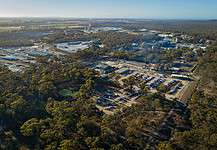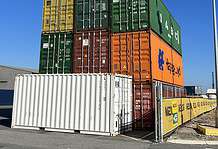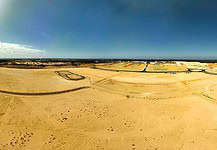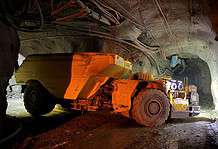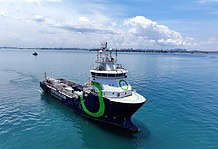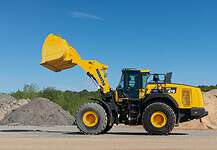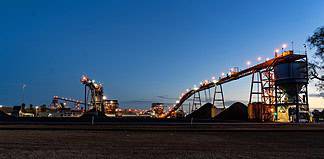What does the 2024 – 2025 Federal Budget mean for the Australian mining industry?
Federal Treasurer Jim Chalmers has handed down his third Budget, with the country recording a surplus of $9.3b.
With a $300 energy rebate, support for renters, tax cuts, student debt relief and support for small businesses (amongst others), what does the mining industry get out of it?
The Australian Mining Review looks at some of the new initiatives put in place to support the mining and resources industry as outlined in the latest Federal Budget announcement.
Future Made in Australia
The 2024 – 2025 Federal Budget invested $22.7b over the next 10 years to build a Future Made in Australia package to maximise the economic and industrial benefits of the move to net zero and secure the country’s place in the changing global economic and strategic landscape.
The Federal Government will create a Future Made in Australia Act and establish a National Interest Framework that will focus on industries that contribute to the net zero transformation.
Renewable Energy
To realise Australia’s potential of producing abundant renewable energy, the Federal Government is pouring more than $65b into renewable capacity through the Capacity Investment Scheme by 2030.
Net Zero Industries and Jobs
To accelerate the growth of new industries, the $1.7b Future Made in Australia Innovation Fund was established and a 10-year funding extension was delivered to the Australian Renewable Energy Agency.
The Hydrogen Production Tax incentive will make Australia’s pipeline of hydrogen projects commercial sooner at an estimated cost of $6.7b over 10 years. The Federal Budget also expanded the Hydrogen Headstart program by $1.3b.
Green Exports
The Federal Government has made it easier for businesses and trading partners to source low-emissions products by building better markets and product standards for green products.
A total of $32.2b was provided to fast-track the initial phase of the Guarantee of Origin scheme, focused on renewable hydrogen and bringing forward the expansion of the scheme to accredit the emissions content of green metals and low-carbon liquid fuels.
The Federal Government is working with trading partners to identify opportunities to drive greater supply chain transparency and better market recognition of high environmental, social and governance standards in the critical minerals sector.
Alliance Nickel chief executive and managing director Paul Kopejtka commented on the funding.
“To stimulate our critical minerals industry the Federal Government needs to invest in and actively support companies working to contribute towards a clean energy future,” he said.
“We have seen good examples of that recently, including our own NiWest nickel cobalt project near Leonora being awarded Major Project Status to help streamline the approvals pathway to development and become Australia’s next green nickel producer.
“Alliance is particularly pleased with the announcement of a 10-year, $7 billion production incentive targeting the critical minerals sector that will see a 10% refund on processing and refining costs for Australia’s critical minerals industry including and importantly, for future battery nickel projects such as our NiWest project.”
Notably, while billions of dollars were invested into green energy, nothing was given to gas and fossil fuels.
“Gas and coal are not part of the [Federal] Budget’s vision for a Future Made in Australia, underlining that our next era of prosperity can be built on cleaner foundations,” Climate Council chief executive Amanada McKenzie said.
“The [Federal] Budget makes an important and overdue opening bid to claim our place as one of the world’s clean energy market leaders.”
Strengthening resources and economic security
The Federal Government is investing $8.8b over the decade to add more value to the country’s resources and strengthen critical minerals supply chains.
At an estimated cost of $7b, the Federal Budget has established a production tax incentive scheme for processing and refining critical minerals.
Up to $1.2b will be committed to strategic critical minerals projects through the Critical Minerals Facility and the Northern Australia Infrastructure Facility.
Furthermore, $1.5b will go towards manufacturing clean energy technologies, including the $1b Solar Sunshot and $523.2m Battery Breakthrough Initiative, both of which are delivered by the Australian Renewable Energy Agency (ARENA).
ARENA chief executive Darren Miller says this is a show of continued support for the agency.
“It is now more urgent than ever to take action on reducing emissions,” he said.
“The Solar Sunshot program will enable Australia to take a first step in establishing a local solar PV manufacturing industry and supply chain” Mr Miller added.
“Playing a meaningful role in the solar PV supply chain is an important part of becoming a renewable energy superpower in the decades ahead.”
This support is in addition to $566.1m to support Geoscience Australia to map all of Australia’s critical minerals, strategic materials, groundwater and other resources essential for the transition to net zero.
Asra Minerals managing director Rob Longley says these investments are a win for small exploration companies.
“Every dollar invested to advance the critical minerals sector in WA and Australia is a win for junior exploration companies like Asra,” he said.
“We’re actively looking for [Federal] Government-listed critical minerals such as lithium and rare earth elements in WA’s Goldfields region, that speed up the pathway to decarbonisation and greener economies.
“The road to net zero literally runs through our resources sector, with Australia home to nine of the 10 critical minerals needed for lithium batteries and an abundance of other minerals required to build EV components.”
Strengthening and streamlining approvals
The Federal Budget provides a quicker pathway to better decisions on environmental, energy, planning, cultural heritage and foreign investment approvals.
This includes:
- $134.2m to better prioritise approvals for renewable energy projects of national significant and support faster decisions on environment, cultural heritage and planning approvals.
- $20.7m to improve engagement with communities impacted by the energy transition and accelerate the delivery of key energy projects.
- $15.7m to strengthen scrutiny of high-risk foreign investment proposals, enhance monitoring and enforcement activities and support faster decisions.
- Working with Australia’s states and territories through the Energy and Climate Change Ministerial Council to accelerate electricity grid connections.







